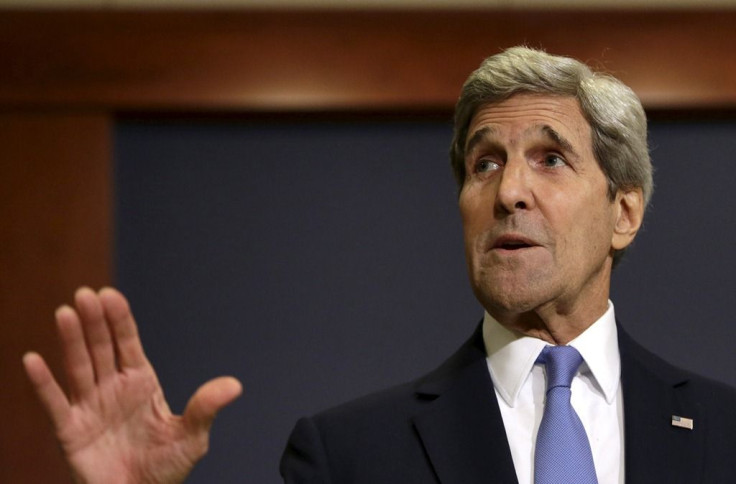US Secretary Of State John Kerry Says Rejecting Iran Deal Would Be 'Historic Mistake'

According to U.S. Secretary of State John Kerry and Energy Secretary Ernest Moniz, it will be a “historic mistake” if Congress rejects the accord on Iran’s nuclear program. They said that the Iran deal was the best way to prevent Iran from having a nuclear weapon.
Kerry and Moniz said that President Barack Obama had vowed never to allow the Islamic republic to build a nuclear bomb while the international community had no insight into Iran’s nuclear program. According to them, the deal is the only “durable and viable” way to achieve it.
“Specifically, the deal blocks each of Iran’s possible pathways to producing fissile material for a nuclear weapon: the highly enriched uranium and the plutonium production pathways, as well as the covert pathway,” the two U.S. officials said in an article published on the Washington Post onWednesday. “If Iran fails to meet its responsibilities, sanctions will snap back into place, and no country can stop that from happening.”
Kerry and Moniz said that failing to approve the deal would isolate the U.S. from its partners and allow Iran to go ahead with its nuclear program.
While the Obama administration believes that rejecting the Iran deal will be a “historic mistake,” Israel believes that the deal itself -- whether accepted or rejected by Congress -- is a “historic mistake” itself. Israeli Prime Minister Benjamin Netanyahu said Wednesday that a “better” deal could have restricted Iran more. The Times of Israel quoted the Israeli prime minister as saying that the deal had made “war not less likely, but more likely.”
The Israeli prime minister said that the deal would start an arms race in the Middle East. He said that the only alternative to the “bad deal” was war.
© Copyright IBTimes 2025. All rights reserved.





















